第15章 III(3)
Legitimists and Orleanists constituted, as said before, the two large factions of the party of Order. What held these two factions to their respective Pretenders, and inversely kept them apart from each other, what else was it but the lily and the tricolor, the House of Bourbon and the house of Orleans, different shades of royalty? Under the Bourbons, Large Landed Property ruled together with its parsons and lackeys; under the Orleanist, it was the high finance, large industry, large commerce, i.e., Capital, with its retinue of lawyers, professors and orators. The Legitimate kingdom was but the political expression for the hereditary rule of the landlords, as the July monarchy was bur the political expression for the usurped rule of the bourgeois upstarts. What, accordingly, kept these two factions apart was no so-called set of principles, it was their material conditions for life--two different sorts of property--; it was the old antagonism of the City and the Country, the rivalry between Capital and Landed property. That simultaneously old recollections; personal animosities, fears and hopes; prejudices and illusions; sympathies and antipathies; convictions, faith and principles bound these factions to one House or the other, who denies it? Upon the several forms of property, upon the social conditions of existence, a whole superstructure is reared of various and peculiarly shaped feelings, illusions, habits of thought and conceptions of life. The whole class produces and shapes these out of its material foundation and out of the corresponding social conditions. The individual unit to whom they flow through tradition and education, may fancy that they constitute the true reasons for and premises of his conduct. Although Orleanists and Legitimists, each of these factions, sought to make itself and the other believe that what kept the two apart was the attachment of each to its respective royal House; nevertheless, facts proved later that it rather was their divided interest that forbade the union of the two royal Houses. As, in private life, the distinction is made between what a man thinks of himself and says, and that which he really is and does, so, all the more, must the phrases and notions of parties in historic struggles be distinguished from the real organism, and their real interests, their notions and their reality.
Orleanists and Legitimists found themselves in the republic beside each other with equal claims. Each side wishing, in opposition to the other, to carry out the restoration of its own royal House, meant nothing else than that each of the two great Interests into which the bourgeoisie is divided--Land and Capital--sought to restore its own supremacy and the subordinacy of the other. We speak of two bourgeois interests because large landed property, despite its feudal coquetry and pride of race, has become completely bourgeois through the development of modern society. Thus did the Tories of England long fancy that they were enthusiastic for the Kingdom, the Church and the beauties of the old English Constitution, until the day of danger wrung from them the admission that their enthusiasm was only for Ground Rent.
The coalized royalists carried on their intrigues against each other in the press, in Ems, in Clarmont--outside of the parliament. Behind the scenes, they don again their old Orleanist and Legitimist liveries, and conduct their old tourneys; on the public stage, however, in their public acts, as a great parliamentary party, they dispose of their respective royal houses with mere courtesies, adjourn "in infinitum" the restoration of the monarchy. Their real business is transacted as Party of Order, i. e., under a Social, not a Political title; as representatives of the bourgeois social system; not as knights of traveling princesses, but as the bourgeois class against the other classes; not as royalists against republicans. Indeed, as party of Order they exercised a more unlimited and harder dominion over the other classes of society than ever before either under the restoration or the July monarchy-a thing possible only under the form of a parliamentary republic, because under this form alone could the two large divisions of the French bourgeoisie be united; in other words, only under this form could they place on the order of business the sovereignty of their class, in lieu of the regime of a privileged faction of the same. If, this notwithstanding, they are seen as the party of Order to insult the republic and express their antipathy for it, it happened not out of royalist traditions only: Instinct taught them that while, indeed, the republic completes their authority, it at the same time undermined their social foundation, in that, without intermediary, without the mask of the crown, without being able to turn aside the national interest by means of its subordinate struggles among its own conflicting elements and with the crown, the republic is compelled to stand up sharp against the subjugated classes, and wrestle with them. It was a sense of weakness that caused them to recoil before the unqualified demands of their own class rule, and to retreat to the less complete, less developed, and, for that very reason, less dangerous forms of the same.